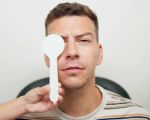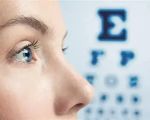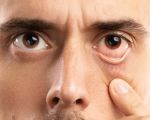- 1-Understanding-Eye-Allergies-and-Their-Impact
- 2-Effective-Strategies-to-Protect-Eyes-During-Allergy-Season
- 3-Daily-Eye-Care-Routine-During-Allergy-Season
- 4-Common-Misconceptions-and-Pitfalls-in-Eye-Allergy-Care
- 5-When-to-Seek-Professional-Help-from-Eye-Docs
1. Understanding Eye Allergies and Their Impact
Seasonal allergies often bring more than just sneezing and nasal congestion; they significantly affect eye health. Allergens such as pollen, dust, and mold can trigger symptoms including redness, itching, tearing, and swelling around the eyes. Understanding these allergic reactions is the first step in learning how to care for eyes during allergy season effectively.
Eye allergies, medically known as allergic conjunctivitis, occur when the immune system overreacts to allergens. This response causes inflammation of the conjunctiva, the thin layer covering the white part of your eyes and inside your eyelids. If not managed properly, these symptoms can cause discomfort and even impact vision.
1.1 Why Eyes are Vulnerable During Allergy Season
The eyes have a delicate surface and rich blood supply, which makes them sensitive to airborne particles. Seasonal changes increase exposure to pollen and spores, making the eyes more prone to irritation. For example, during spring, high pollen counts have been linked to spikes in allergic conjunctivitis cases worldwide.
1.2 Recognizing the Signs Early
Common symptoms include itching, watery eyes, redness, and a gritty sensation. Some people also experience swollen eyelids or light sensitivity. Early recognition and response can prevent worsening symptoms and reduce discomfort.
2. Effective Strategies to Protect Eyes During Allergy Season
Once you understand the vulnerability of your eyes during allergy season, implementing effective protective measures is crucial. These strategies combine environmental control, personal habits, and safe product use.
2.1 Minimize Allergen Exposure
Keeping windows closed during high pollen days and using air purifiers can reduce indoor allergen levels. Wearing wrap-around sunglasses outdoors shields your eyes from direct contact with airborne irritants.
2.2 Proper Hygiene and Eye Protection
Frequent hand washing prevents transferring allergens to your eyes. Avoid rubbing your eyes, which can exacerbate irritation and increase inflammation. Using clean towels and pillowcases helps reduce allergen accumulation.
2.3 Use of Allergy-Friendly Eye Drops
Over-the-counter antihistamine or lubricating eye drops can alleviate symptoms safely. However, choosing the right drops is essential—some contain preservatives that may worsen irritation. Consulting trusted sources like Eye Docs can guide you to suitable products tailored for sensitive eyes during allergy season.
3. Daily Eye Care Routine During Allergy Season
Developing a consistent eye care routine helps maintain comfort and eye health through the challenging months.
3.1 Gentle Cleansing and Warm Compresses
Using a clean, damp cloth to gently wipe the eyelids can remove allergens and soothe inflammation. Warm compresses relax the eyes and improve circulation, aiding in symptom relief.
3.2 Hydration and Balanced Nutrition
Drinking plenty of water supports tear production and eye moisture. Nutrients like omega-3 fatty acids and vitamins A and C contribute to overall eye health, enhancing resilience against irritants.
3.3 Monitoring Symptom Progression
Keep track of any changes or worsening symptoms. This awareness enables timely adjustments in care or seeking medical advice when needed.
4. Common Misconceptions and Pitfalls in Eye Allergy Care
Despite widespread allergy season eye issues, many myths and mistakes hinder effective care.
4.1 Avoiding Rubbing the Eyes
While instinctive, rubbing aggravates symptoms and can damage the delicate eye surface. It’s a common mistake that worsens allergic reactions.
4.2 Misuse of Eye Drops
Some believe any eye drops can help; however, using drops with harsh chemicals or prolonged use of decongestant drops can cause rebound redness or irritation.
4.3 Overlooking Environmental Controls
Ignoring simple environmental measures like cleaning air filters or avoiding outdoor exposure during peak pollen times reduces overall effectiveness of symptom management.
5. When to Seek Professional Help from Eye Docs
While many symptoms can be managed at home, certain signs indicate it’s time to consult an eye specialist.
5.1 Persistent or Severe Symptoms
If redness, itching, or swelling persists beyond two weeks or worsens despite home care, professional evaluation is crucial to rule out infections or other eye conditions.
5.2 Vision Changes
Blurriness, pain, or light sensitivity warrant immediate attention from eye docs to prevent lasting damage.
5.3 Customized Treatment Plans
Eye Docs offer tailored treatments including prescription medications or allergy testing, ensuring a comprehensive approach to eye care during allergy season. Their expertise can significantly improve quality of life for allergy sufferers.
One memorable case involves a patient who struggled with severe seasonal allergic conjunctivitis for years. After visiting Eye Docs, she received a personalized treatment plan combining prescription eye drops and lifestyle adjustments. The transformation in her symptoms was profound, allowing her to enjoy springtime again without constant discomfort.
Ultimately, understanding how to care for eyes during allergy season with a blend of knowledge, practical habits, and professional support can protect your vision and enhance comfort. For expert advice and the best allergy-friendly eye care products, explore the offerings available at Eye Docs to keep your eyes healthy all year round.








